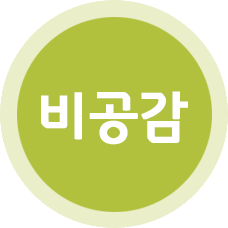영어 인터뷰 받아쓰기 틀린 곳 지적해주시면 수정하겠습니다.
원래 인터뷰는 아래 링크에서 들을 수 있습니다.
https://www.bbc.co.uk/sounds/play/p08nkw9p
Sam Okyere: When I was in school, I was pretty much the only black person on campus or in my entire department to have (however?) been so many people, so many Africans, coming out here to study and what not. So the number has definitely grown steady over the last couple of years. So if you're here, you're going to meet people from Liberia, Ghana, Rwanda, just from different parts of the continent.
BBC: So what's experience like, then, being black in South Korea?
Sam Okyere: To be honest, it's the reason why I decided to go into the entertainment industry. I realized that there wasn't really a lot of representation. A lot of Africans really don't know about Korea and a lot of Koreans do not really have an opportunity to get to know, for example, like Africans and, you know, the different cultures that are there, so I decided to put myself in a position where I can expose a lot of Koreans to people like me and where we're from, and our cultures, and vice versa, just tell other Ghanaians and other Africans about the Korean culture, the language and what not.
BBC: So what are the attitudes that Korean people hold towards black people?
Sam Okyere: I think for the most part, it's a thing of, like I said, a lack of exposure where they haven't really had a lot of opportunity to meet so many different people. For example, if you look at Africa as a continent, there's so many countries, but you don't really have somebody that's teaching them that variety, so it's easy for a Korean who was not exposed to subjects like that to just accept what they have probably seen on television, because when I asked my Korean friends, "What informs your identity or your image of a black person?", they say, "Only opportunity we have to meet like (me?) was through movies and dramas or whatever". So the portrayal of that is, what they eventually get to understand is what the image of a black person is. But there have been instances where people are just blatantly being sort of like racist. But that is pretty much everywhere you got. I don't think it's only peculiar to South Korea.
BBC: So when you saw a group of high school students doing basically black face, the parody of the famous Ghanaian dancing pallbearers' scene, at the graduation event, you called it out. But there was a massive reaction to that. Tell me what was the predominant reaction.
Sam Okyere: I think a lot of people, they misunderstood what was going on because a lot of people thought the intent was to call out the kids and bash them or whatever. But that was not the intent at all because I actually understand what the kids were coming from. They didn't mean to cause any harm. They thought, okay, we're doing a parody, we might as well do it in detail, right? So it was coming from a very misinformed place, but not a place of blatantly wanting to mock, you know, black people. So when that started out, it was a lot of meaningful conversations back and forth between some Koreans and I who were trying to understand where I was coming from. And we had great conversations. But everywhere you go, you find out that there is a small group of people who don't have any intention of really continuing a conversation and dialogue, which is the ultimate goal, but just want to attack. And we know that negativity is louder and people gravitate towards that. So that became a sort of controversy.
BBC: Do you think that in South Korea people understand that it IS insulting?
Sam Okyere: I feel like people, because they did not know the history behind black face and why it's offensive, people didn't really understand or grasp that concept of "Oh, but it was just a party. Why would you be worked out?" But some Korean were able to make the connection because this isn't the first time I made a statement about that. And truth be told, if I thought that way(?), I wouldn't be having this interview with you.
BBC: People actually also rounded on you and said that you yourself were racist also, because of your past behavior on air. People quoted you making a gesture, pulling your eyes with your fingers, which is a common, you know, gesture of racism against Asian people. And you did this in something called "Non Summit" in 2015.
Sam Okyere: The context was, we were talking about ugly faces, a contest(?) in Spain, and we were trying to do ugly faces. So there was no intent of mocking Koreans or Asians. That wouldn't make any sense because I work and live in Korea. Now, when you look at it in terms of it being a sensitive issue, you say, "Hey Okyere, that looks racist", and I say, "Yeah, you're right. I didn't mean that, but I see why you could see like that."
BBC: The Black Lives Matter campaign had a lot of support in Korea, right? I saw people out with signs and all of that. That was quite interesting to me. Did it surprise you that there was support for the Black Lives Matter campaign in South Korea?
Sam Okyere: It was surprising in a great way, because that was like one of the first times a lot of Korean celebrities have openly expressed opinions and the support for, you know, the Black Lives Matter movement. That, to me. showed me that all the work that we've been putting in for years and years is bearing some sort of fruit, because 5, 10 years ago would this have happened? I highly doubt it.
저는 이 인터뷰에서 어느 부분이 한국 사람들 일부를 화나게 하는지 잘 모르겠습니다.





